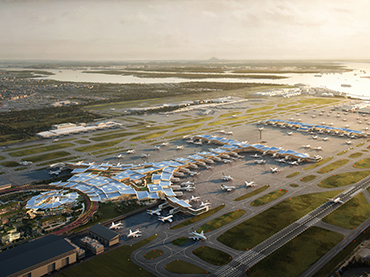Statement by Acting Minister for Transport Chee Hong Tat at the Third ICAO Conference on Aviation and Alternative Fuels (CAAF/3) United Arab Emirates
President of the ICAO Council Mr Salvatore Sciacchitano,
Secretary-General Mr Juan Carlos Salazar,
Fellow Ministers, distinguished delegates,
1. Tackling climate change is a global effort by all stakeholders. The aviation industry must do its part so that it can continue to develop and grow sustainably, and bring long-term benefits to economies and people. We took a huge step forward at last year’s Assembly by setting the 2050 net zero goal. We must keep up this momentum and start to take concrete actions now to achieve this long-term vision with tangible plans.
2. Sustainable Aviation Fuel (SAF) is currently the main way for airlines to reduce their carbon emissions. However, high costs and limited global supply remain key challenges. CAAF represents an opportunity for States to agree on a meaningful and feasible global framework that will help to advance SAF development and adoption. The framework should signal the aviation industry’s commitment to decarbonisation, provide demand certainty to fuel producers, and mobilise innovation, investments and financing to scale up global SAF development.
3. The framework must be an inclusive and collective one that recognises the diverse circumstances, resources and capabilities of each State, as well as define the pathway for each State to develop and adopt SAF in a responsible manner. We should have a quantified goal that exemplifies the aviation sector’s ambition. However, in defining this goal, we must take a pragmatic and realistic approach given the uncertainties in the global supply and price of SAF.
4. ICAO has assessed that about 4 – 7% carbon emissions reduction could be achieved based on potential SAF production by 2030. Airline associations in Europe and the Asia Pacific, such as Airlines for Europe and the Association of Asia Pacific Airlines, have also considered equivalent carbon emissions reduction target of 4-5% by 2030. Singapore proposes that we adopt a range for the quantified goal with a pragmatic and credible lower bound and a realistic yet ambitious upper bound to reflect our collective aspirations, which ICAO and the international aviation community can adopt to spur SAF production and investments.
5. The framework should also be fuel, feedstock and technology neutral, and should adopt an approach that is backed by scientific evidence. Limited global supply of SAF is already driving up prices. We should not impose further restrictions and constrain production pathways, without sound scientific basis or evidence. We should recognise CORSIA’s sustainability criteria as a single global standard for determining feedstock and fuel acceptability, to accelerate and commoditise SAF production.
6. The framework should also increase technical support, training, and capacity building for States, so that no country is left behind in this green transition. Singapore will continue to support such efforts. There is also a need for global access to public-private partnerships, blended and philanthropic finance to de-risk SAF investments.
7. While the global framework will chart the way for SAF adoption, we should encourage States that are ready to do more to also adopt the other initiatives under ICAO’s basket of measures for aviation decarbonisation. Singapore is looking to collaborate and partner with other States to collectively implement these measures, and accelerate the reduction of our aviation carbon emissions.
8. Let me conclude by underscoring Singapore’s commitment to actively supporting ICAO in international aviation sustainability and climate action, so that aviation continues to grow sustainably. We look forward to working closely with ICAO, Member States, and other stakeholders towards successful outcomes at CAAF.
9. Thank you.
